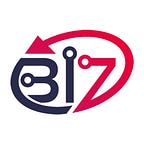Building Secure and Scalable Financial App: A Development Guide
From managing finances to analyzing data, financial software plays a crucial role in the success of any business.
But with so many options available, how do you know which financial software is right for your specific business need?
In this article, we’ll explore the key considerations for financial software development and how to ensure you get the best custom financial software for your business.
- Understanding Your Business Needs
Before diving into the development process, it’s important to understand your business needs and goals. This will help you determine the specific features and functionalities that your financial software should have.
- Analyzing Your Current Processes
The first step in understanding your business needs is to analyze your current processes. This includes identifying pain points, inefficiencies, and areas for improvement. By understanding your current processes, you can determine which features and functionalities are necessary for your financial software.
- Identifying Your Goals
Next, it’s important to identify your business goals. Are you looking to increase efficiency, reduce costs, or improve data analysis? Knowing your goals will help you prioritize the features and functionalities that are most important for your financial software.
Choosing Between Off-the-Shelf and Custom Financial Software
Regarding financial software, there are two main options: off-the-shelf and custom software. Each has its own benefits and drawbacks, and it’s important to consider which option is best for your business.
- Off-the-Shelf Software
Off-the-shelf financial software is pre-built and available for purchase. It typically offers a wide range of features and functionalities and is often more affordable than custom software. However, it may not fully meet the specific needs of your business and may require additional customization or integration with other systems.
- Custom Financial Software
Custom financial software is built specifically for your business and its unique needs. It offers a high level of customization and can be tailored to fit your specific processes and goals. While it may be more expensive upfront, it can save time and money in the long run by streamlining processes and improving efficiency.
Key Features and Functionalities to Consider
When developing financial software, there are several key features and functionalities to consider. These will vary depending on your business needs, but some common ones include:
- Accounting and Bookkeeping
One of the primary functions of financial software is to manage accounting and bookkeeping tasks. This includes tracking income and expenses, creating financial statements, and managing accounts payable and receivable. When considering financial software, make sure it has robust accounting and bookkeeping capabilities.
- Data Analysis and Reporting
Another important feature to consider is data analysis and reporting. Financial software should be able to collect and analyze data from various sources, providing insights and reports that can help inform business decisions. Look for software that offers customizable reporting options and the ability to integrate with other systems for a comprehensive view of your financial data.
- Security and Compliance
Financial software deals with sensitive financial information, so security and compliance are crucial considerations. Make sure the software you choose has robust security measures in place, such as encryption and user authentication. It should also comply with relevant regulations, such as GDPR, SSL, and HIPAA.
- Using cloud computing smartly
You will very likely take advantage of cloud computing while building your FinTech app since managed cloud service providers offer many advantages. However, you need to use the cloud smartly!
